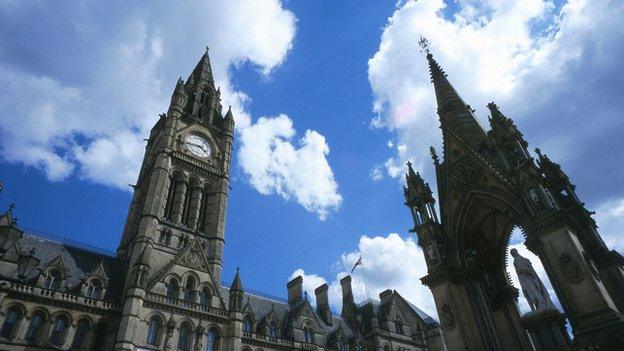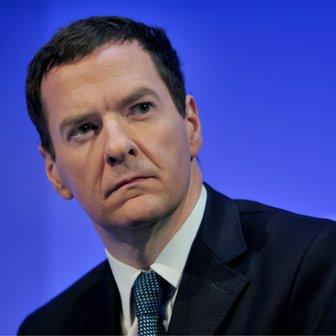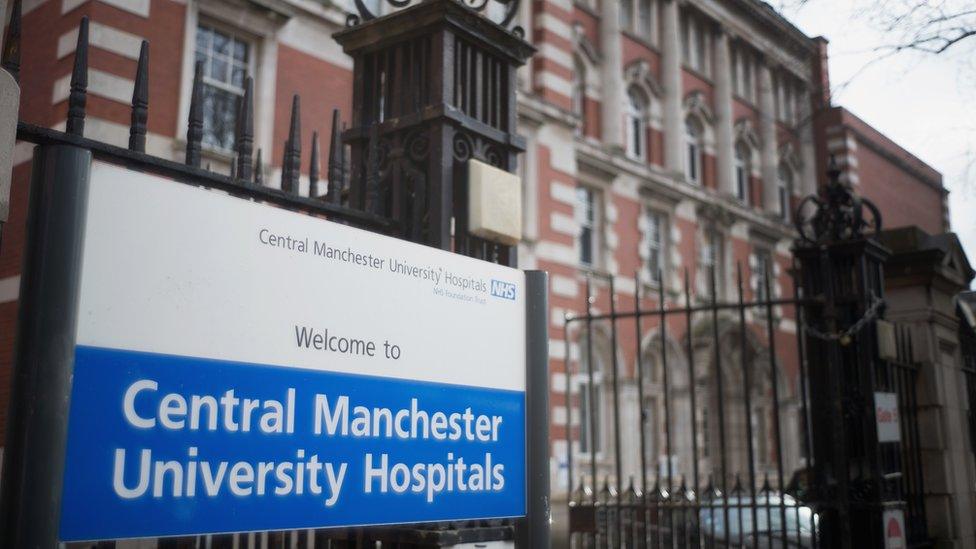'Devo Manc' and the NHS
- Published

Details of the plan were announced at Manchester Town Hall
It has been a potentially momentous week for the NHS and the future of regional government in England.
That's what the rhetoric is suggesting. But details of the ground-breaking announcements on health and social care in Greater Manchester are still patchy.
The jury will be out for a while, but opinion formers in the health world are favourably disposed at this stage.
News of such significance is often trailed in a controlled way with a few outlines released in advanced followed by the full package at a pre-planned press conference.
It was nothing of the sort this time.
The announcement was a genuine surprise - there had been no nudges and winks in preceding weeks.
It was leaked by over-eager councillors in the Manchester area briefing BBC Radio Manchester and the Manchester Evening News. Well done to them on a fine scoop.
I gather NHS England chiefs were livid that their thunder had been stolen by local authority sources in Manchester.
They had planned to unveil the plan in the city today once the memorandum of understanding had been signed.
'Northern powerhouse'

Local doctors and councillors will be involved in managing Manchester's health and social care spending
The merger of health and social care for 2.7m people will be one of the most significant developments on Simon Stevens' watch.
Understandably he wanted to be in control of the announcement.
The Chancellor George Osborne, unsurprisingly, was smiling as he delivered a brief TV clip after the story broke.
It fits in well with his Northern powerhouse agenda and the devolution of power and money from Whitehall to Manchester which he set in train last autumn.
Cynics might think it all looks rather convenient with the election barely two months away.
But I am told that his contacts amongst Greater Manchester councillors were important in facilitating an agreement.
A Chancellor of the Exchequer has the clout across national and regional government to make things happen.
'Worst to best'
So with the Chancellor and Simon Stevens of NHS England unveiling the plan in Manchester today, what have we learned?
The first thing which has been made clear is that this is a joint initiative involving local authorities and the GPs who head the local health commissioning groups.
The idea that £6 billion was being handed to local councillors was always wrong.
A new strategic health and social care partnership board will have representatives from the councils, hospitals and other providers, clinical commissioning groups and local NHS England management.
It has been emphasised that the deal does not amount to another reorganisation of the NHS.
The new structure in Manchester will have to work to standards on care and patient rights and meet statutory duties set out in the NHS Constitution.
Even so Simon Stevens described it as the greatest integration and devolution of care since the creation of the NHS in 1948.
Defining moment?
The £6 billion annual budget which has been much talked about includes a mix of money already provided to the local health economy and funds devolved from the centre by NHS England.

Chancellor George Osborne led the announcement on Friday
About £1.5 billion currently spent by NHS England will be handed to the new Greater Manchester body.
This includes money spent on specialised commissioning, for example treatments of rare diseases, and on GP services. The £6 billion pooled budget will also include funding for public health and social care at present held in town halls.
There is no doubt of the excitement amongst health and civic leaders in Greater Manchester, with "defining moment" and "unprecedented agreement" spicing up the press releases.
There is a genuine conviction that the new arrangements will help move the region from one with some of the worst health outcomes to the best.
Joined up thinking and spending, its argued, will promote prevention and care outside hospitals which can only improve the lives of residents.
And yet.....it will be a huge undertaking.
The structure, we are told, will be in place by April 2016 and fully functional a year later.
Remember, this has never before been tried in England. It will be on a bigger scale than the integrated health and social care system in Northern Ireland which has been operational since the 1970s.
There are suspicions in the health world that local councillors will distort priorities for the NHS.
A former clinical director of an NHS drug and alcohol service warned in The Guardian today that devolving this service to a local authority had resulted in it being outsourced because of local government competitive tendering rules.
Few doubt that the prize of genuine health and social care integration is well worth striving for. But delivering it is a big ask.
There will be unintended consequences and continued questions about whether this is the beginning of a fragmentation of the NHS in England.
Perhaps the old cliche is applicable here - only time will tell.
- Published27 February 2015
